6 Key Benefits of Collecting and Using Customer Data
6 Key Benefits of Collecting and Using Customer Data
6 Key Benefits of Collecting and Using Customer Data
Unlock customer insights & boost your business! Discover 6 key benefits of collecting and using customer data.
Unlock customer insights & boost your business! Discover 6 key benefits of collecting and using customer data.
Unlock customer insights & boost your business! Discover 6 key benefits of collecting and using customer data.



Have You Ever Felt Like Your Phone Reads Your Mind?
Ever scrolled through social media and suddenly see ads for that exact pair of shoes you were just browsing online? Or maybe you get a notification about a sale on your favorite coffee brand, right when you're craving a caffeine fix.
It's almost spooky, right?
Well, that's the real power of customer data.
Did you know that 91% of consumers are more likely to shop with brands that remember and provides relevant offers and recommendations?
That's right, customer data isn't just about companies bombarding you with ads; it's about creating a more personalized and convenient shopping experience for you, the consumer.
This guide will unlock the secrets behind customer data and how it shapes your everyday life. We'll explore how this information has the potential to save you money, improve your favorite products, and even influence the development of entirely new technologies.
So, get ready to dive into the benefits of data collection for consumers.

#1 Improving Customer Experiences and Engagement
We all have experienced it! one-size-fits-all has expired.
Customer data is revolutionizing the way businesses interact with you, the consumer. Imagine this: you walk into a store and are greeted by name, offered discounts on your favorite products, and directed straight to the new release you've been eyeing.
This personalized service, once a fantasy, is becoming a reality thanks to customer data.
This is possible because the companies leverage this information to create a more engaging experience for you:
By analyzing customer data, companies can identify trends and preferences. This allows them to develop products that cater to specific needs and interests.
For instance, streaming services analyze your viewing habits to curate personalized recommendations, while music platforms suggest new artists based on your listening history.
Imagine a news app that tailors its content feed to your areas of interest, or a fitness app that recommends personalized workout routines based on your activity level.Customer data goes beyond just purchases. Companies can track website interactions, social media activity, and even email preferences to understand how you like to be communicated with.
This allows them to send you targeted promotions, relevant product updates, and exclusive offers that resonate with your interests, as opposed to generic mass marketing blasts.
Have you ever received birthday discounts on your favorite clothing brand or early access to a product launch you've shown interest in? – that's the power of personalized communication at work.
Personalized interactions build trust by demonstrating that a company understands you as an individual, not just a number. This fosters a stronger connection between you and the brand.
To ensure your company is leveraging data effectively for unmatched customer engagement, consider exploring tools like Metaforms for deeper insights.
Also read: 6 Methods and Benefits of Automated Data Capture to know the trends in collecting data.
#2 Enhancing Decision-Making and Market Positioning
Remember the days of businesses taking action without any reason and hoping some marketing tactic would stick?
Thankfully, those days are over. Customer data has become the compass, the ultimate cheat sheet for companies to make smarter decisions – decisions that benefit you, the consumer, in surprising ways.
Imagine this: you scroll through social media and suddenly see an ad for a product you literally just mentioned to a friend.
It's customer data at work, giving companies a peek into your interests and online behavior.
But here's the good news: this data isn't just about creepy ads. A study by McKinsey & Company found that companies that leverage customer data effectively can see a 10-30% increase in customer satisfaction and retention. That's a win-win!
So, how exactly does customer data make businesses brainiacs?
Companies use customer data to understand what you actually want, not just what they think you want. Did you know that a whopping 86% of customers are willing to pay more for a better customer experience?
That's a powerful motivator for companies to analyze your preferences and tailor their offerings accordingly.
Think about how streaming services recommend movies you'll love based on your past choices, or how online retailers suggest products you might need based on your recent purchases.
It's all about using data to create a more personalized and satisfying experience for you.By analyzing trends in searches, social media chatter, and buying habits, companies can predict what you'll want before you even know it.
This allows them to develop innovative products and services that meet your future needs. Take an example of a fitness trackers that not only monitor your workouts but also suggest personalized nutrition plans based on your activity data.
It's a powerful tool that helps businesses make smarter decisions, personalize your experiences, and ultimately, create a marketplace that caters to your ever-evolving needs.
#3 Optimizing Marketing Strategies and ROI
Companies can now craft laser-focused campaigns that resonate with consumers, which leads to a win-win for everyone.
Segmentation allows companies to divide audiences based on interests. Think of it like sorting seeds – each type thrives under specific conditions. Similarly, segmentation lets companies tailor messages to specific groups, leading to increase in marketing ROI according to McKinsey & Company.
No more irrelevant ads! By understanding your online behavior, companies can target their advertising effectively. This means less wasted money on irrelevant placements and more on reaching the right audience at the right time. A HubSpot study found that people click on ads simply because of repetition, not genuine interest.
Customer data cuts through the noise, ensuring you see promotions for products you might actually be interested in.
Marketing is no longer a "set it and forget it" game.
Customer data allows for real-time analysis of campaign performance. Companies can constantly tweak their messages based on data, just like a chef tasting their dish and making adjustments. This ensures marketing efforts are constantly refined for maximum impact.
#4 Fostering Innovation and Product Development
Revolutionary new product you saw advertised that perfectly addressed a pain point you didn't even know you had?
Customer data might be the secret sauce behind it. By analyzing vast amounts of data, companies can identify trends, preferences, and unmet needs in the market. Companies that leverage customer data for innovation see an improvement in customer satisfaction.
This data becomes the foundation for product development, ensuring new offerings cater to what the market truly desires.
Customer data isn't a one-time snapshot; it's a continuous conversation between you and the customers you interact with. Companies can leverage various tools to gather feedback, such as surveys, social media sentiment analysis, and app reviews.
This feedback loop allows for ongoing improvements and tweaks to existing products and services.
Companies can identify areas for improvement and refine their offerings to better meet customer’s needs.
As customer data continues to evolve and play a bigger role in product development, how can companies balance innovation and privacy concerns?
Innovate and develop products that truly meet consumer needs by leveraging the predictive analytics capabilities of Metaforms. Start your free trial today!
#5 Optimizing Pricing Strategies and Sales Efforts
Did you know that, according to an IBM study, 62% of customers switch brands due to high prices?
Customer data plays a crucial role in achieving this sweet spot, optimizing pricing strategies and sales efforts for both businesses and consumers. Let's explore how this information creates a win-win scenario.
By analyzing customer data, companies can understand price sensitivity – how different customer segments react to price changes. This allows them to develop targeted pricing models that are both competitive and profitable.
For instance, a music streaming service might analyze user data to offer tiered subscription plans – a basic ad-supported plan for budget-conscious users, and a premium plan with higher quality audio and exclusive content for those willing to pay more.
The Power of Recommendation:
Customer data isn't just about past purchases; it reveals preferences and buying habits. By leveraging this information, companies can recommend products that complement your past purchases, boosting customer satisfaction and generating additional sales.
A study by Accenture found that 75% of customers expect companies to use their purchase history to recommend relevant products.
Let's say, you are buying a new camera and then you start seeing recommendations for compatible lenses or memory cards. This personalized approach to cross-selling and upselling makes the buying experience more convenient and efficient for you, the customer.
#6 Respecting Privacy and Navigating Ethical Considerations
At the heart of ethical data collection lies transparency and informed consent. Companies must clearly explain what data they collect, how it's used, and how your privacy is protected.
The consumer should have the right to choose whether or not to share their data, and be able to easily access, correct, or delete it upon request.
A study revealed that 72% of Americans are concerned about how companies use their data. Well, not just Americans, but customers from anywhere in general.
Prioritizing clear communication and obtaining explicit consent builds trust and empowers you to make informed decisions about your data privacy.
Fortunately, there are legal frameworks in place to safeguard your privacy. Companies must adhere to regulations like GDPR (General Data Protection Regulation) and CCPA (California Consumer Privacy Act) that define how customer data can be collected, stored, and used. These regulations ensure responsible data handling practices and empower you with control over your information.
Also Check out our blog post about the smart ways to collect customer data
Conclusion
While customer data unlocks a future of personalized experiences, innovative products, and smarter marketing, this power comes with a responsibility for ethical use. Transparency, consent, and responsible practices are key to unlocking the true benefits of data collection for consumers.
Metaforms.ai, an AI-powered customer data platform, empowers businesses to navigate this responsibly.
Visit Metaforms today and unlock the power of data for a future where both you and your business thrive.
Have You Ever Felt Like Your Phone Reads Your Mind?
Ever scrolled through social media and suddenly see ads for that exact pair of shoes you were just browsing online? Or maybe you get a notification about a sale on your favorite coffee brand, right when you're craving a caffeine fix.
It's almost spooky, right?
Well, that's the real power of customer data.
Did you know that 91% of consumers are more likely to shop with brands that remember and provides relevant offers and recommendations?
That's right, customer data isn't just about companies bombarding you with ads; it's about creating a more personalized and convenient shopping experience for you, the consumer.
This guide will unlock the secrets behind customer data and how it shapes your everyday life. We'll explore how this information has the potential to save you money, improve your favorite products, and even influence the development of entirely new technologies.
So, get ready to dive into the benefits of data collection for consumers.

#1 Improving Customer Experiences and Engagement
We all have experienced it! one-size-fits-all has expired.
Customer data is revolutionizing the way businesses interact with you, the consumer. Imagine this: you walk into a store and are greeted by name, offered discounts on your favorite products, and directed straight to the new release you've been eyeing.
This personalized service, once a fantasy, is becoming a reality thanks to customer data.
This is possible because the companies leverage this information to create a more engaging experience for you:
By analyzing customer data, companies can identify trends and preferences. This allows them to develop products that cater to specific needs and interests.
For instance, streaming services analyze your viewing habits to curate personalized recommendations, while music platforms suggest new artists based on your listening history.
Imagine a news app that tailors its content feed to your areas of interest, or a fitness app that recommends personalized workout routines based on your activity level.Customer data goes beyond just purchases. Companies can track website interactions, social media activity, and even email preferences to understand how you like to be communicated with.
This allows them to send you targeted promotions, relevant product updates, and exclusive offers that resonate with your interests, as opposed to generic mass marketing blasts.
Have you ever received birthday discounts on your favorite clothing brand or early access to a product launch you've shown interest in? – that's the power of personalized communication at work.
Personalized interactions build trust by demonstrating that a company understands you as an individual, not just a number. This fosters a stronger connection between you and the brand.
To ensure your company is leveraging data effectively for unmatched customer engagement, consider exploring tools like Metaforms for deeper insights.
Also read: 6 Methods and Benefits of Automated Data Capture to know the trends in collecting data.
#2 Enhancing Decision-Making and Market Positioning
Remember the days of businesses taking action without any reason and hoping some marketing tactic would stick?
Thankfully, those days are over. Customer data has become the compass, the ultimate cheat sheet for companies to make smarter decisions – decisions that benefit you, the consumer, in surprising ways.
Imagine this: you scroll through social media and suddenly see an ad for a product you literally just mentioned to a friend.
It's customer data at work, giving companies a peek into your interests and online behavior.
But here's the good news: this data isn't just about creepy ads. A study by McKinsey & Company found that companies that leverage customer data effectively can see a 10-30% increase in customer satisfaction and retention. That's a win-win!
So, how exactly does customer data make businesses brainiacs?
Companies use customer data to understand what you actually want, not just what they think you want. Did you know that a whopping 86% of customers are willing to pay more for a better customer experience?
That's a powerful motivator for companies to analyze your preferences and tailor their offerings accordingly.
Think about how streaming services recommend movies you'll love based on your past choices, or how online retailers suggest products you might need based on your recent purchases.
It's all about using data to create a more personalized and satisfying experience for you.By analyzing trends in searches, social media chatter, and buying habits, companies can predict what you'll want before you even know it.
This allows them to develop innovative products and services that meet your future needs. Take an example of a fitness trackers that not only monitor your workouts but also suggest personalized nutrition plans based on your activity data.
It's a powerful tool that helps businesses make smarter decisions, personalize your experiences, and ultimately, create a marketplace that caters to your ever-evolving needs.
#3 Optimizing Marketing Strategies and ROI
Companies can now craft laser-focused campaigns that resonate with consumers, which leads to a win-win for everyone.
Segmentation allows companies to divide audiences based on interests. Think of it like sorting seeds – each type thrives under specific conditions. Similarly, segmentation lets companies tailor messages to specific groups, leading to increase in marketing ROI according to McKinsey & Company.
No more irrelevant ads! By understanding your online behavior, companies can target their advertising effectively. This means less wasted money on irrelevant placements and more on reaching the right audience at the right time. A HubSpot study found that people click on ads simply because of repetition, not genuine interest.
Customer data cuts through the noise, ensuring you see promotions for products you might actually be interested in.
Marketing is no longer a "set it and forget it" game.
Customer data allows for real-time analysis of campaign performance. Companies can constantly tweak their messages based on data, just like a chef tasting their dish and making adjustments. This ensures marketing efforts are constantly refined for maximum impact.
#4 Fostering Innovation and Product Development
Revolutionary new product you saw advertised that perfectly addressed a pain point you didn't even know you had?
Customer data might be the secret sauce behind it. By analyzing vast amounts of data, companies can identify trends, preferences, and unmet needs in the market. Companies that leverage customer data for innovation see an improvement in customer satisfaction.
This data becomes the foundation for product development, ensuring new offerings cater to what the market truly desires.
Customer data isn't a one-time snapshot; it's a continuous conversation between you and the customers you interact with. Companies can leverage various tools to gather feedback, such as surveys, social media sentiment analysis, and app reviews.
This feedback loop allows for ongoing improvements and tweaks to existing products and services.
Companies can identify areas for improvement and refine their offerings to better meet customer’s needs.
As customer data continues to evolve and play a bigger role in product development, how can companies balance innovation and privacy concerns?
Innovate and develop products that truly meet consumer needs by leveraging the predictive analytics capabilities of Metaforms. Start your free trial today!
#5 Optimizing Pricing Strategies and Sales Efforts
Did you know that, according to an IBM study, 62% of customers switch brands due to high prices?
Customer data plays a crucial role in achieving this sweet spot, optimizing pricing strategies and sales efforts for both businesses and consumers. Let's explore how this information creates a win-win scenario.
By analyzing customer data, companies can understand price sensitivity – how different customer segments react to price changes. This allows them to develop targeted pricing models that are both competitive and profitable.
For instance, a music streaming service might analyze user data to offer tiered subscription plans – a basic ad-supported plan for budget-conscious users, and a premium plan with higher quality audio and exclusive content for those willing to pay more.
The Power of Recommendation:
Customer data isn't just about past purchases; it reveals preferences and buying habits. By leveraging this information, companies can recommend products that complement your past purchases, boosting customer satisfaction and generating additional sales.
A study by Accenture found that 75% of customers expect companies to use their purchase history to recommend relevant products.
Let's say, you are buying a new camera and then you start seeing recommendations for compatible lenses or memory cards. This personalized approach to cross-selling and upselling makes the buying experience more convenient and efficient for you, the customer.
#6 Respecting Privacy and Navigating Ethical Considerations
At the heart of ethical data collection lies transparency and informed consent. Companies must clearly explain what data they collect, how it's used, and how your privacy is protected.
The consumer should have the right to choose whether or not to share their data, and be able to easily access, correct, or delete it upon request.
A study revealed that 72% of Americans are concerned about how companies use their data. Well, not just Americans, but customers from anywhere in general.
Prioritizing clear communication and obtaining explicit consent builds trust and empowers you to make informed decisions about your data privacy.
Fortunately, there are legal frameworks in place to safeguard your privacy. Companies must adhere to regulations like GDPR (General Data Protection Regulation) and CCPA (California Consumer Privacy Act) that define how customer data can be collected, stored, and used. These regulations ensure responsible data handling practices and empower you with control over your information.
Also Check out our blog post about the smart ways to collect customer data
Conclusion
While customer data unlocks a future of personalized experiences, innovative products, and smarter marketing, this power comes with a responsibility for ethical use. Transparency, consent, and responsible practices are key to unlocking the true benefits of data collection for consumers.
Metaforms.ai, an AI-powered customer data platform, empowers businesses to navigate this responsibly.
Visit Metaforms today and unlock the power of data for a future where both you and your business thrive.
Have You Ever Felt Like Your Phone Reads Your Mind?
Ever scrolled through social media and suddenly see ads for that exact pair of shoes you were just browsing online? Or maybe you get a notification about a sale on your favorite coffee brand, right when you're craving a caffeine fix.
It's almost spooky, right?
Well, that's the real power of customer data.
Did you know that 91% of consumers are more likely to shop with brands that remember and provides relevant offers and recommendations?
That's right, customer data isn't just about companies bombarding you with ads; it's about creating a more personalized and convenient shopping experience for you, the consumer.
This guide will unlock the secrets behind customer data and how it shapes your everyday life. We'll explore how this information has the potential to save you money, improve your favorite products, and even influence the development of entirely new technologies.
So, get ready to dive into the benefits of data collection for consumers.

#1 Improving Customer Experiences and Engagement
We all have experienced it! one-size-fits-all has expired.
Customer data is revolutionizing the way businesses interact with you, the consumer. Imagine this: you walk into a store and are greeted by name, offered discounts on your favorite products, and directed straight to the new release you've been eyeing.
This personalized service, once a fantasy, is becoming a reality thanks to customer data.
This is possible because the companies leverage this information to create a more engaging experience for you:
By analyzing customer data, companies can identify trends and preferences. This allows them to develop products that cater to specific needs and interests.
For instance, streaming services analyze your viewing habits to curate personalized recommendations, while music platforms suggest new artists based on your listening history.
Imagine a news app that tailors its content feed to your areas of interest, or a fitness app that recommends personalized workout routines based on your activity level.Customer data goes beyond just purchases. Companies can track website interactions, social media activity, and even email preferences to understand how you like to be communicated with.
This allows them to send you targeted promotions, relevant product updates, and exclusive offers that resonate with your interests, as opposed to generic mass marketing blasts.
Have you ever received birthday discounts on your favorite clothing brand or early access to a product launch you've shown interest in? – that's the power of personalized communication at work.
Personalized interactions build trust by demonstrating that a company understands you as an individual, not just a number. This fosters a stronger connection between you and the brand.
To ensure your company is leveraging data effectively for unmatched customer engagement, consider exploring tools like Metaforms for deeper insights.
Also read: 6 Methods and Benefits of Automated Data Capture to know the trends in collecting data.
#2 Enhancing Decision-Making and Market Positioning
Remember the days of businesses taking action without any reason and hoping some marketing tactic would stick?
Thankfully, those days are over. Customer data has become the compass, the ultimate cheat sheet for companies to make smarter decisions – decisions that benefit you, the consumer, in surprising ways.
Imagine this: you scroll through social media and suddenly see an ad for a product you literally just mentioned to a friend.
It's customer data at work, giving companies a peek into your interests and online behavior.
But here's the good news: this data isn't just about creepy ads. A study by McKinsey & Company found that companies that leverage customer data effectively can see a 10-30% increase in customer satisfaction and retention. That's a win-win!
So, how exactly does customer data make businesses brainiacs?
Companies use customer data to understand what you actually want, not just what they think you want. Did you know that a whopping 86% of customers are willing to pay more for a better customer experience?
That's a powerful motivator for companies to analyze your preferences and tailor their offerings accordingly.
Think about how streaming services recommend movies you'll love based on your past choices, or how online retailers suggest products you might need based on your recent purchases.
It's all about using data to create a more personalized and satisfying experience for you.By analyzing trends in searches, social media chatter, and buying habits, companies can predict what you'll want before you even know it.
This allows them to develop innovative products and services that meet your future needs. Take an example of a fitness trackers that not only monitor your workouts but also suggest personalized nutrition plans based on your activity data.
It's a powerful tool that helps businesses make smarter decisions, personalize your experiences, and ultimately, create a marketplace that caters to your ever-evolving needs.
#3 Optimizing Marketing Strategies and ROI
Companies can now craft laser-focused campaigns that resonate with consumers, which leads to a win-win for everyone.
Segmentation allows companies to divide audiences based on interests. Think of it like sorting seeds – each type thrives under specific conditions. Similarly, segmentation lets companies tailor messages to specific groups, leading to increase in marketing ROI according to McKinsey & Company.
No more irrelevant ads! By understanding your online behavior, companies can target their advertising effectively. This means less wasted money on irrelevant placements and more on reaching the right audience at the right time. A HubSpot study found that people click on ads simply because of repetition, not genuine interest.
Customer data cuts through the noise, ensuring you see promotions for products you might actually be interested in.
Marketing is no longer a "set it and forget it" game.
Customer data allows for real-time analysis of campaign performance. Companies can constantly tweak their messages based on data, just like a chef tasting their dish and making adjustments. This ensures marketing efforts are constantly refined for maximum impact.
#4 Fostering Innovation and Product Development
Revolutionary new product you saw advertised that perfectly addressed a pain point you didn't even know you had?
Customer data might be the secret sauce behind it. By analyzing vast amounts of data, companies can identify trends, preferences, and unmet needs in the market. Companies that leverage customer data for innovation see an improvement in customer satisfaction.
This data becomes the foundation for product development, ensuring new offerings cater to what the market truly desires.
Customer data isn't a one-time snapshot; it's a continuous conversation between you and the customers you interact with. Companies can leverage various tools to gather feedback, such as surveys, social media sentiment analysis, and app reviews.
This feedback loop allows for ongoing improvements and tweaks to existing products and services.
Companies can identify areas for improvement and refine their offerings to better meet customer’s needs.
As customer data continues to evolve and play a bigger role in product development, how can companies balance innovation and privacy concerns?
Innovate and develop products that truly meet consumer needs by leveraging the predictive analytics capabilities of Metaforms. Start your free trial today!
#5 Optimizing Pricing Strategies and Sales Efforts
Did you know that, according to an IBM study, 62% of customers switch brands due to high prices?
Customer data plays a crucial role in achieving this sweet spot, optimizing pricing strategies and sales efforts for both businesses and consumers. Let's explore how this information creates a win-win scenario.
By analyzing customer data, companies can understand price sensitivity – how different customer segments react to price changes. This allows them to develop targeted pricing models that are both competitive and profitable.
For instance, a music streaming service might analyze user data to offer tiered subscription plans – a basic ad-supported plan for budget-conscious users, and a premium plan with higher quality audio and exclusive content for those willing to pay more.
The Power of Recommendation:
Customer data isn't just about past purchases; it reveals preferences and buying habits. By leveraging this information, companies can recommend products that complement your past purchases, boosting customer satisfaction and generating additional sales.
A study by Accenture found that 75% of customers expect companies to use their purchase history to recommend relevant products.
Let's say, you are buying a new camera and then you start seeing recommendations for compatible lenses or memory cards. This personalized approach to cross-selling and upselling makes the buying experience more convenient and efficient for you, the customer.
#6 Respecting Privacy and Navigating Ethical Considerations
At the heart of ethical data collection lies transparency and informed consent. Companies must clearly explain what data they collect, how it's used, and how your privacy is protected.
The consumer should have the right to choose whether or not to share their data, and be able to easily access, correct, or delete it upon request.
A study revealed that 72% of Americans are concerned about how companies use their data. Well, not just Americans, but customers from anywhere in general.
Prioritizing clear communication and obtaining explicit consent builds trust and empowers you to make informed decisions about your data privacy.
Fortunately, there are legal frameworks in place to safeguard your privacy. Companies must adhere to regulations like GDPR (General Data Protection Regulation) and CCPA (California Consumer Privacy Act) that define how customer data can be collected, stored, and used. These regulations ensure responsible data handling practices and empower you with control over your information.
Also Check out our blog post about the smart ways to collect customer data
Conclusion
While customer data unlocks a future of personalized experiences, innovative products, and smarter marketing, this power comes with a responsibility for ethical use. Transparency, consent, and responsible practices are key to unlocking the true benefits of data collection for consumers.
Metaforms.ai, an AI-powered customer data platform, empowers businesses to navigate this responsibly.
Visit Metaforms today and unlock the power of data for a future where both you and your business thrive.
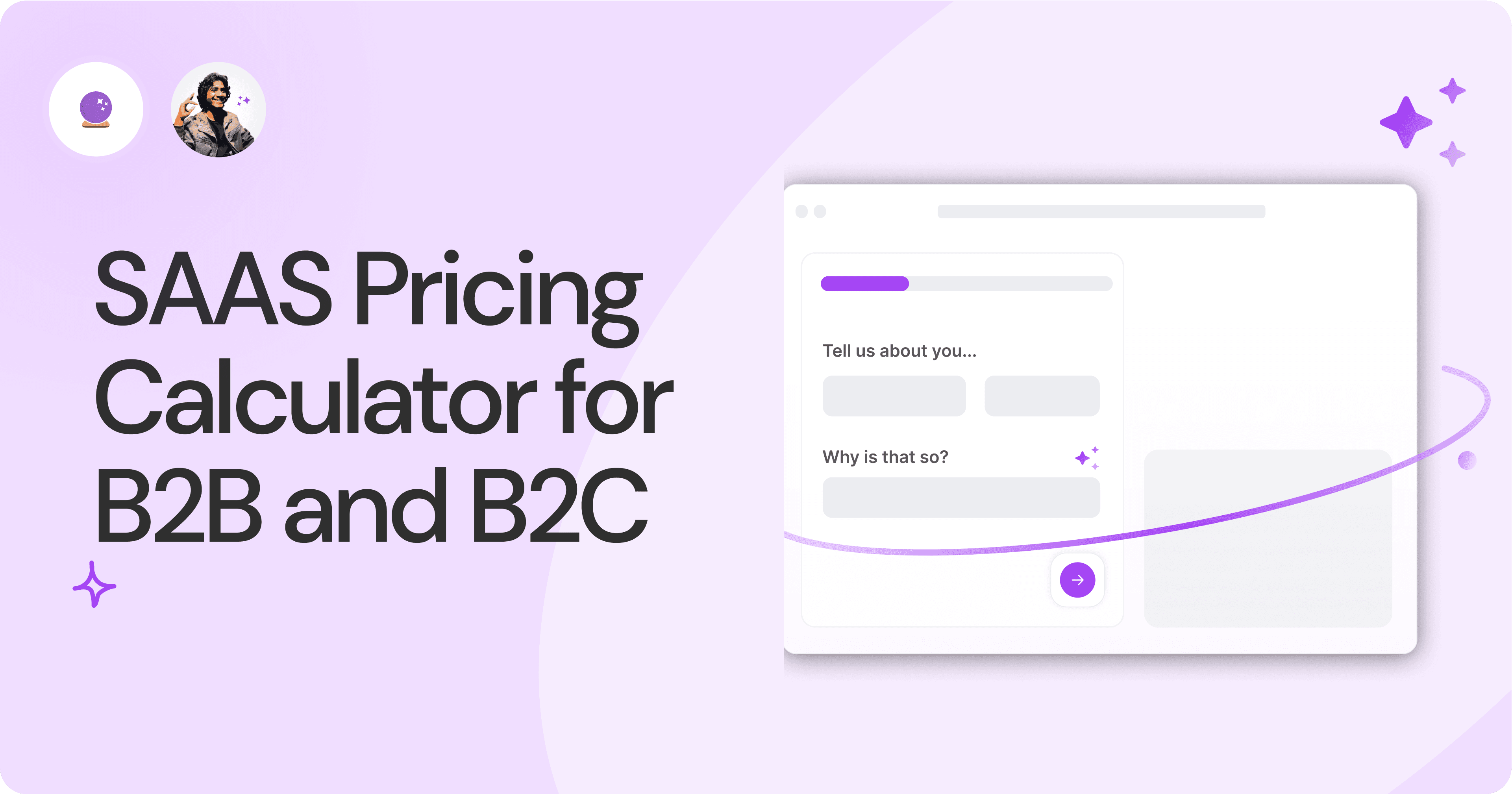
SAAS Pricing Calculators: B2B v B2C Online Forms.
The SaaS pricing calculator is an essential tool for both B2B and B2C SaaS companies. But how do you build it, right? We have you covered.
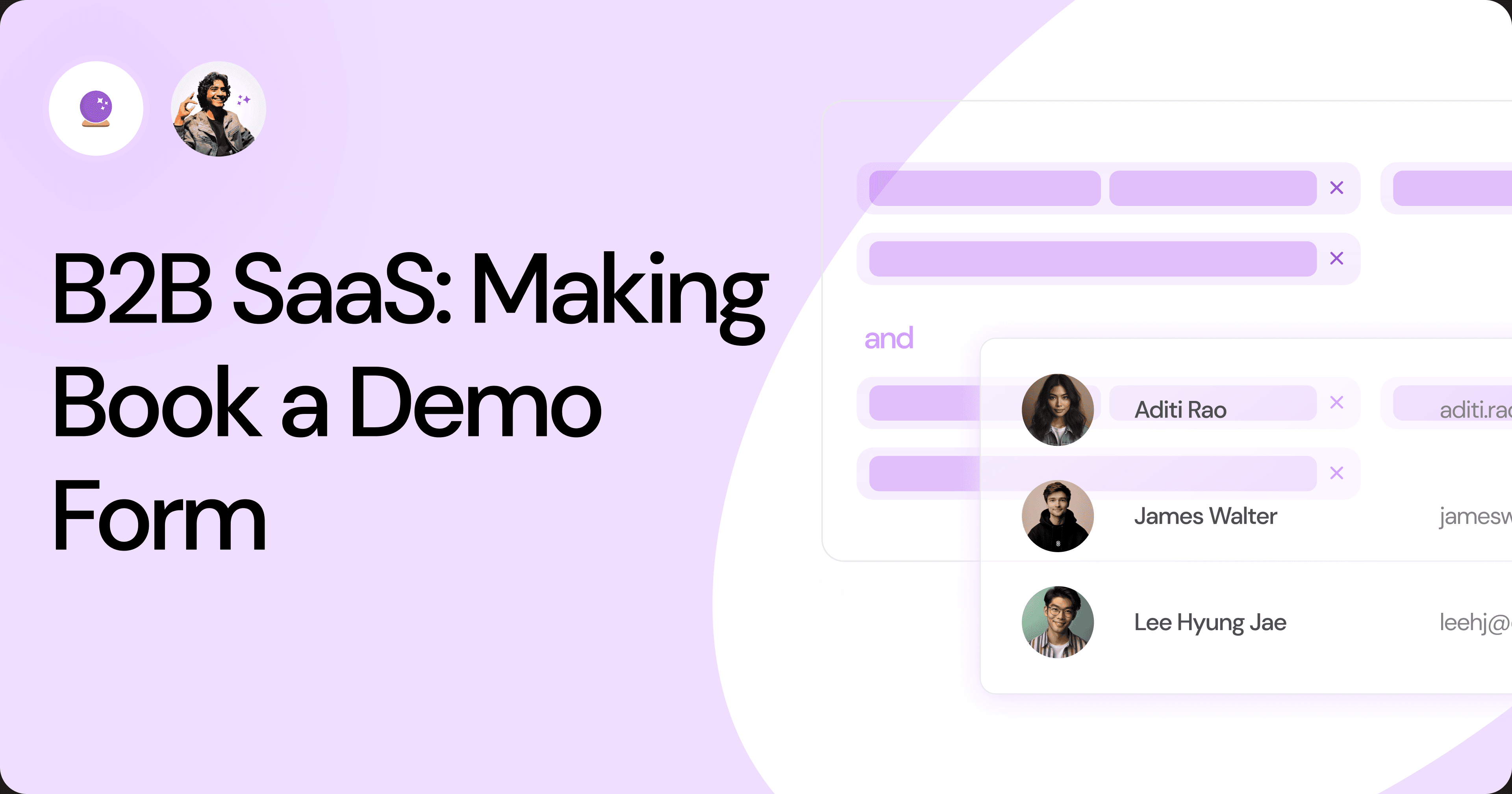
B2B SaaS: Making Book a Demo Form.
Having the perfect book a demo form for B2B SaaS is the first step in capturing leads. There are a few fundamental techniques to get this form right. Read on.

How to Get Started With SaaS Onboarding.
SaaS onboarding is essential for customer onboarding in B2B and B2C SaaS. Let’s understand its fundamentals, including the metrics.
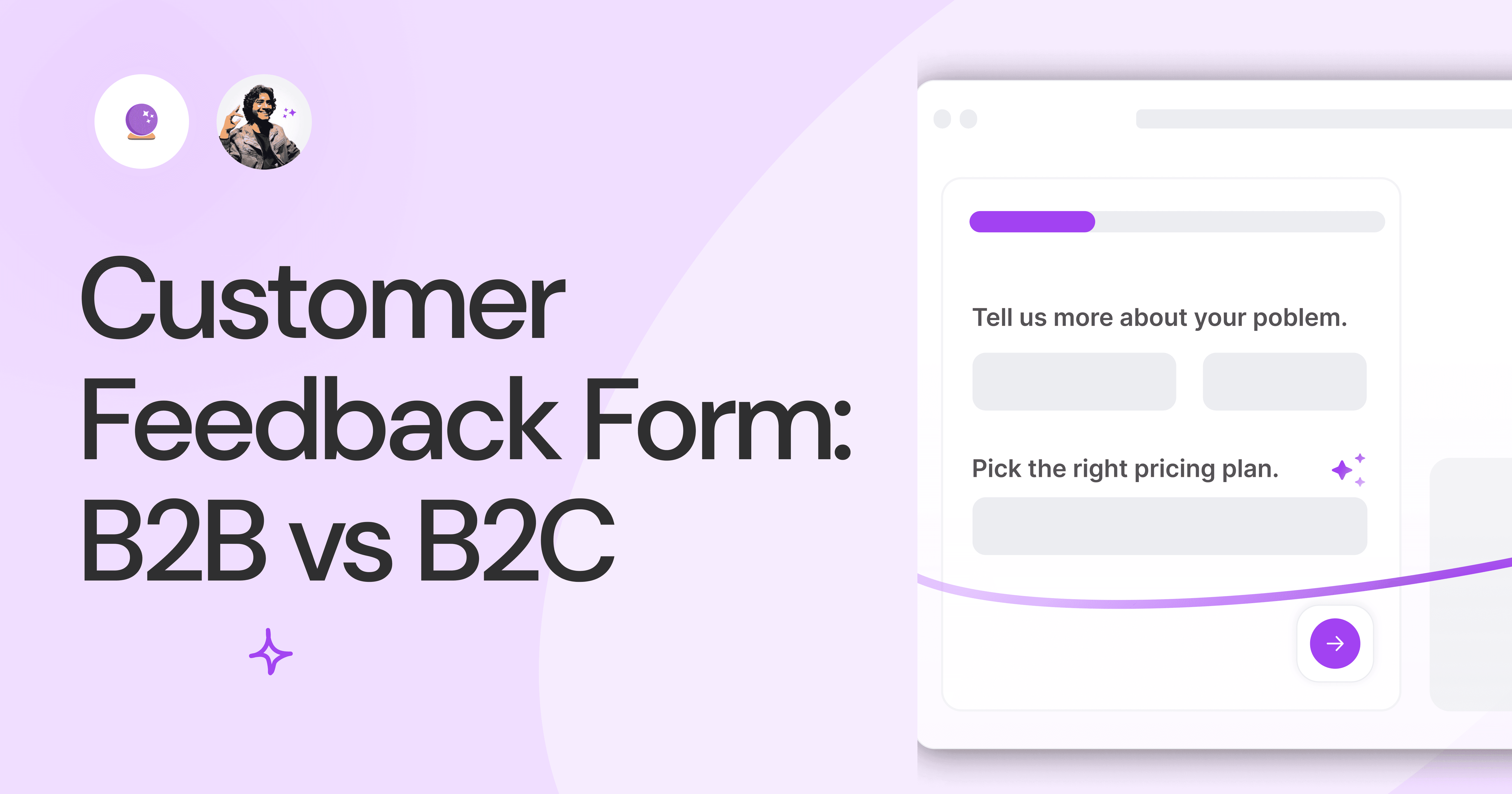
Customer Feedback Form: B2B vs B2C.
Why is customer feedback important? Because it dictates progress on B2B and B2B products and services for the customer to meet their goals.
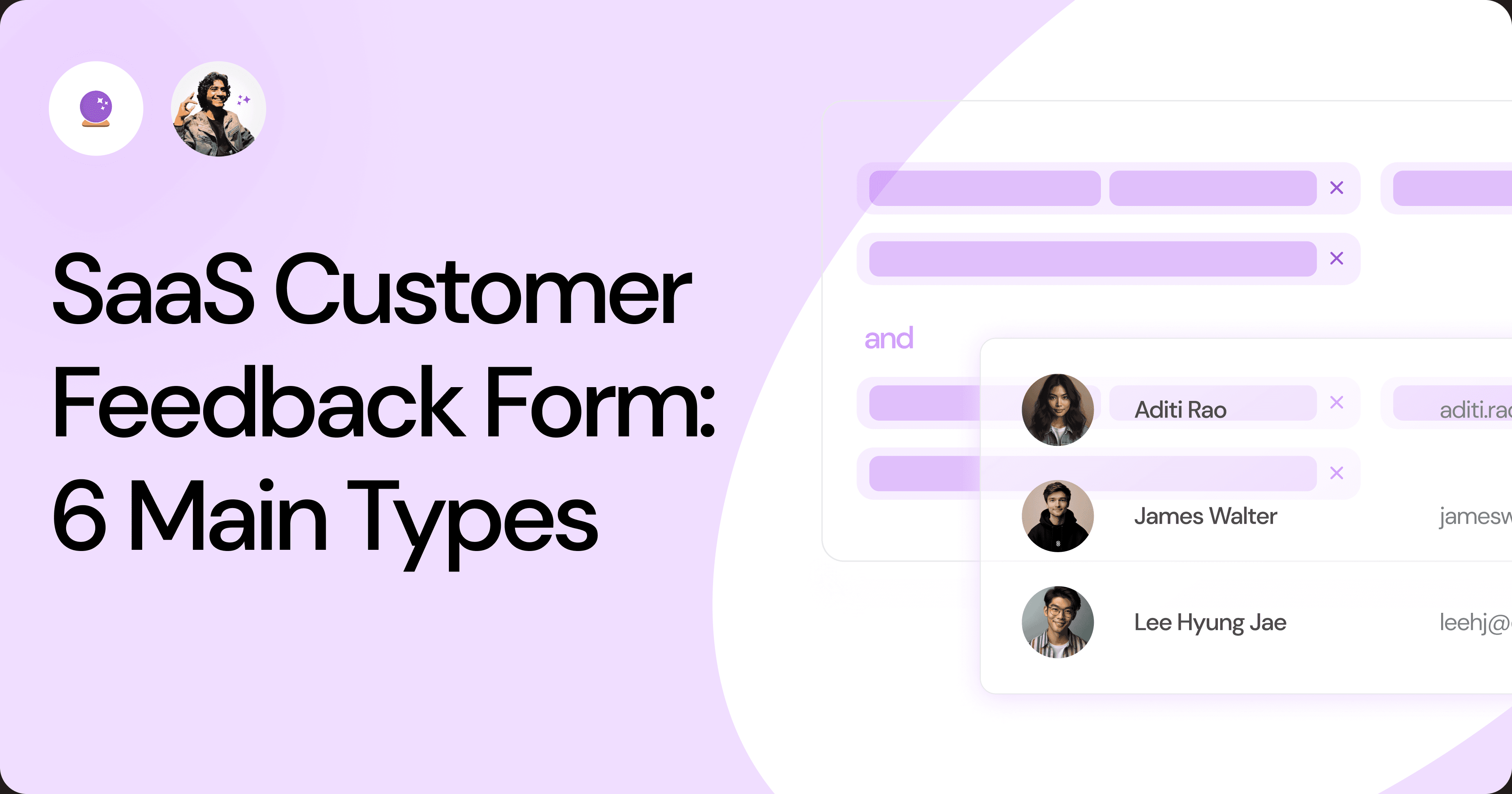
SaaS Customer Feedback Form: 6 Main Types.
As much as SaaS is self-serve, the role of a customer feedback form is highly relevant. There are different types, each with its use case and sections.
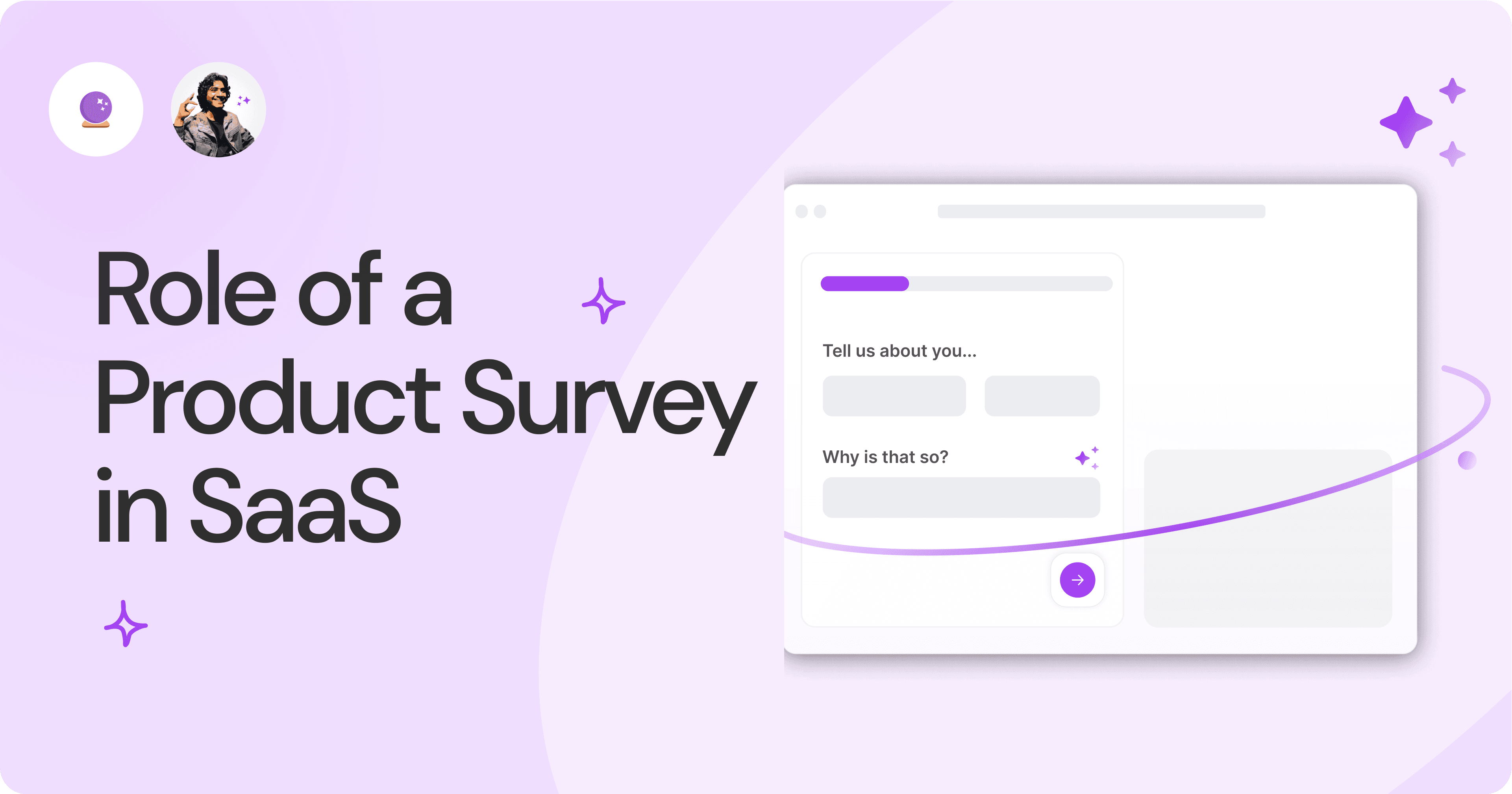
Role of a Product Survey in SaaS.
SaaS is all about creating products for specific use cases. This is where a product survey becomes all the more important to know the user deeply.
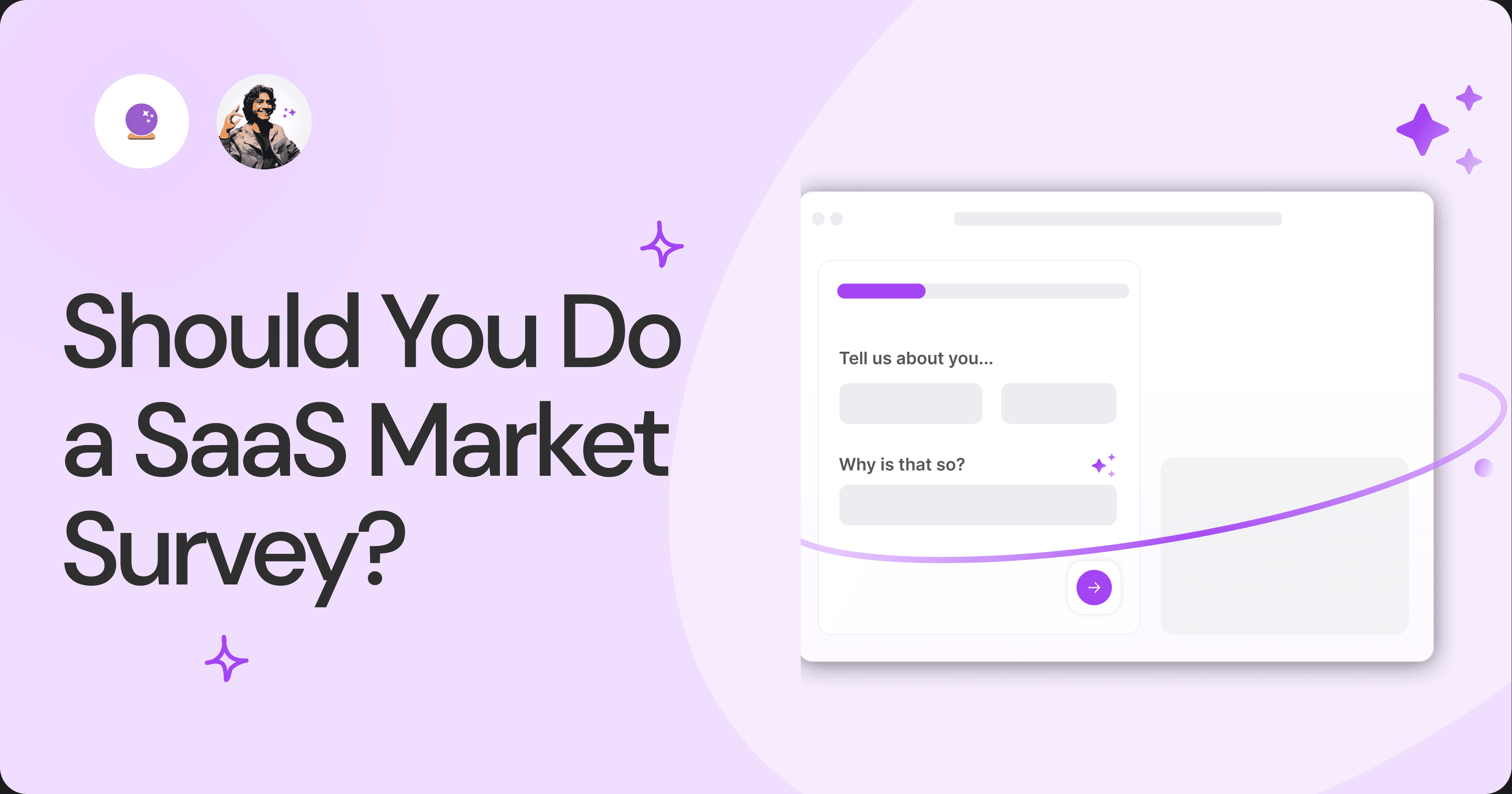
Should You Do a SaaS Market Survey?
Every SaaS company wants to grow fast. But without a market survey, growth isn't possible or sustainable. Let’s see how to do a market survey.

SAAS Pricing Calculators: B2B v B2C Online Forms.
The SaaS pricing calculator is an essential tool for both B2B and B2C SaaS companies. But how do you build it, right? We have you covered.

B2B SaaS: Making Book a Demo Form.
Having the perfect book a demo form for B2B SaaS is the first step in capturing leads. There are a few fundamental techniques to get this form right. Read on.

How to Get Started With SaaS Onboarding.
SaaS onboarding is essential for customer onboarding in B2B and B2C SaaS. Let’s understand its fundamentals, including the metrics.

Customer Feedback Form: B2B vs B2C.
Why is customer feedback important? Because it dictates progress on B2B and B2B products and services for the customer to meet their goals.

SaaS Customer Feedback Form: 6 Main Types.
As much as SaaS is self-serve, the role of a customer feedback form is highly relevant. There are different types, each with its use case and sections.

Role of a Product Survey in SaaS.
SaaS is all about creating products for specific use cases. This is where a product survey becomes all the more important to know the user deeply.

Should You Do a SaaS Market Survey?
Every SaaS company wants to grow fast. But without a market survey, growth isn't possible or sustainable. Let’s see how to do a market survey.

SAAS Pricing Calculators: B2B v B2C Online Forms.
The SaaS pricing calculator is an essential tool for both B2B and B2C SaaS companies. But how do you build it, right? We have you covered.

B2B SaaS: Making Book a Demo Form.
Having the perfect book a demo form for B2B SaaS is the first step in capturing leads. There are a few fundamental techniques to get this form right. Read on.

How to Get Started With SaaS Onboarding.
SaaS onboarding is essential for customer onboarding in B2B and B2C SaaS. Let’s understand its fundamentals, including the metrics.

Customer Feedback Form: B2B vs B2C.
Why is customer feedback important? Because it dictates progress on B2B and B2B products and services for the customer to meet their goals.

SaaS Customer Feedback Form: 6 Main Types.
As much as SaaS is self-serve, the role of a customer feedback form is highly relevant. There are different types, each with its use case and sections.

Role of a Product Survey in SaaS.
SaaS is all about creating products for specific use cases. This is where a product survey becomes all the more important to know the user deeply.

Should You Do a SaaS Market Survey?
Every SaaS company wants to grow fast. But without a market survey, growth isn't possible or sustainable. Let’s see how to do a market survey.
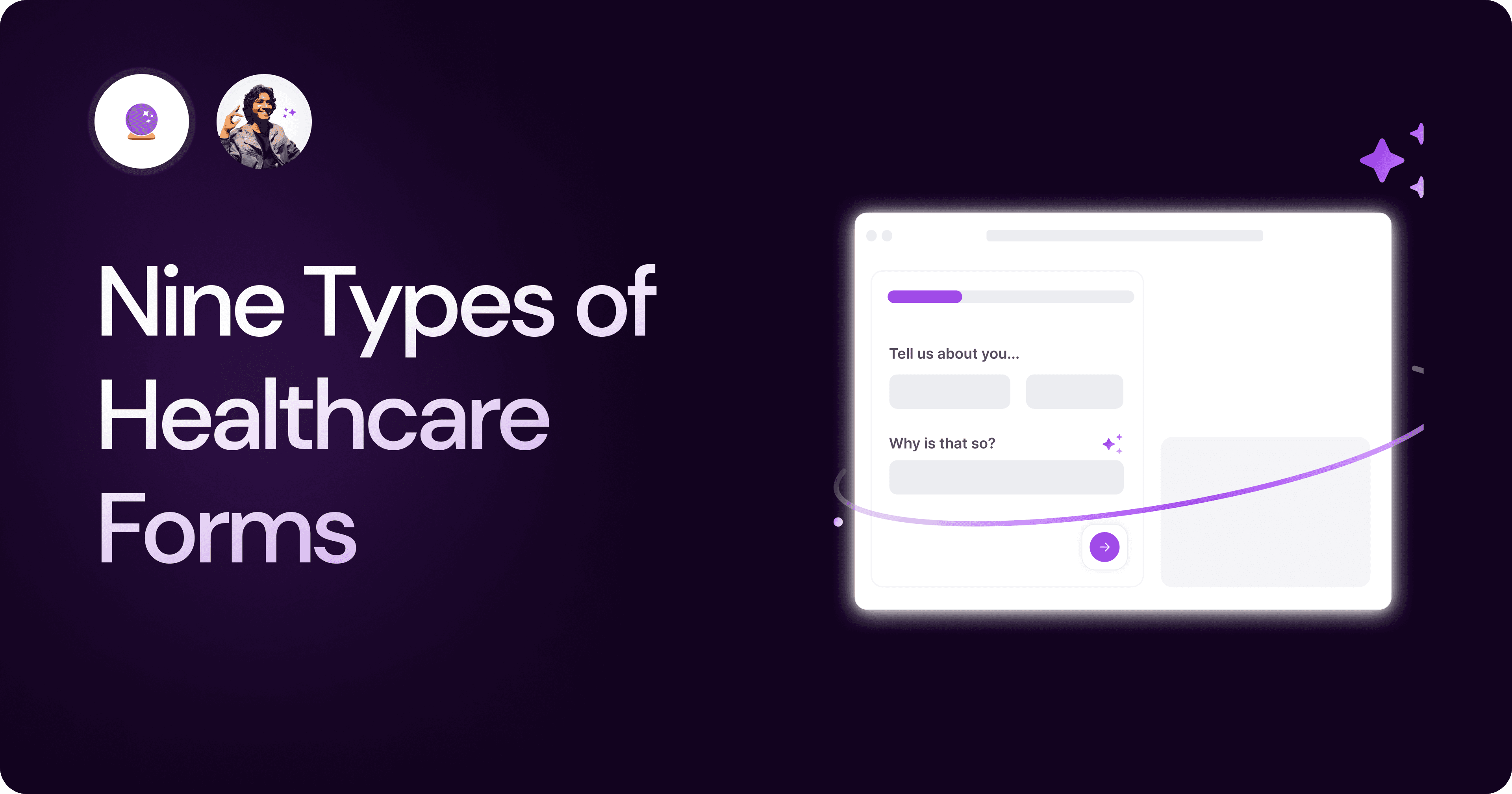
Nine Types of Healthcare and Medical Forms.
Medical forms are a must-have for any healthcare business or practitioner. Learn about the different kinds of medical and healthcare forms.
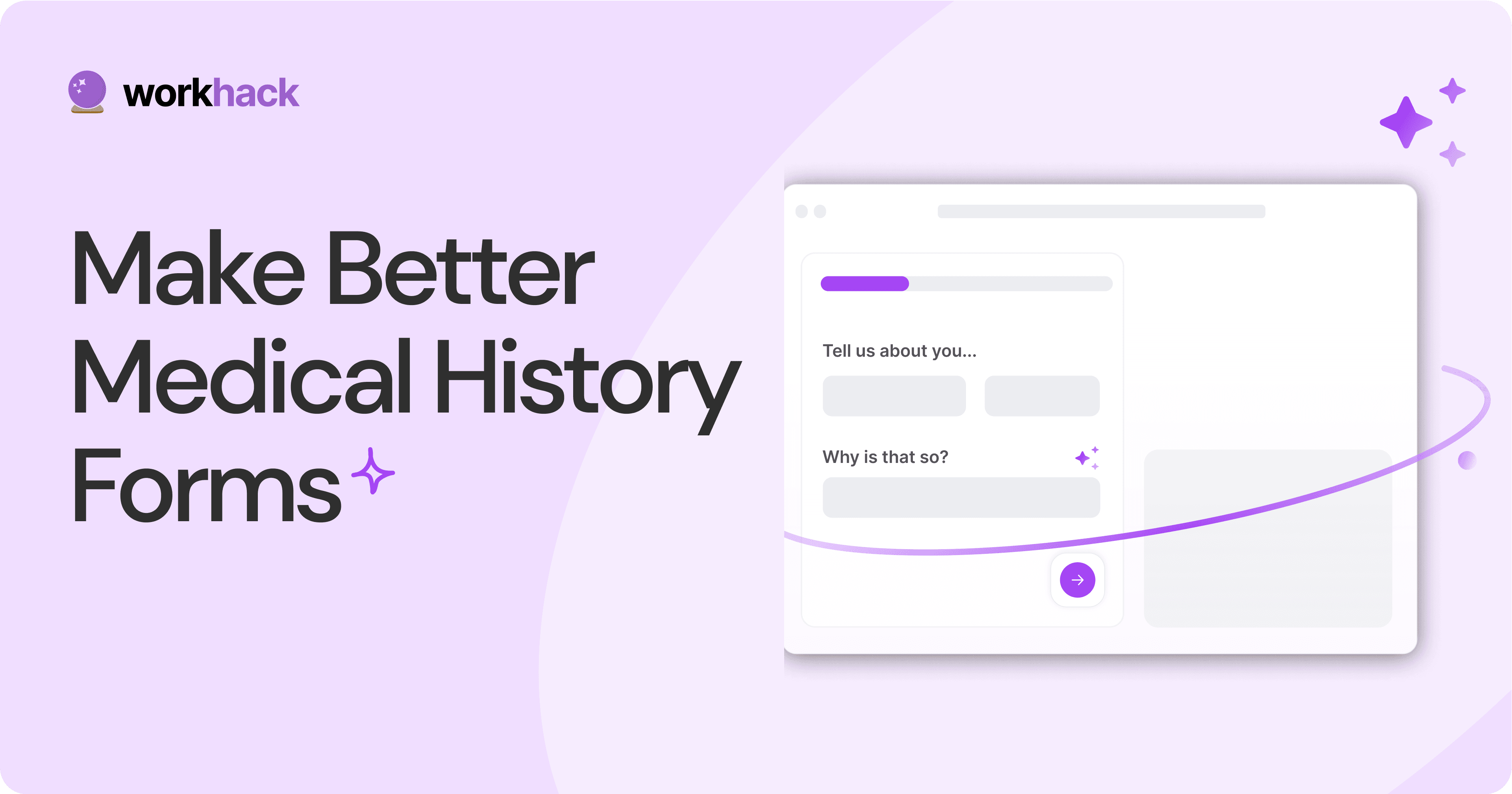
4 Tips for Better Medical History Forms.
Medical history forms are central to patient care, onboarding, and medical administration records. Learn how to make them easier to fill.
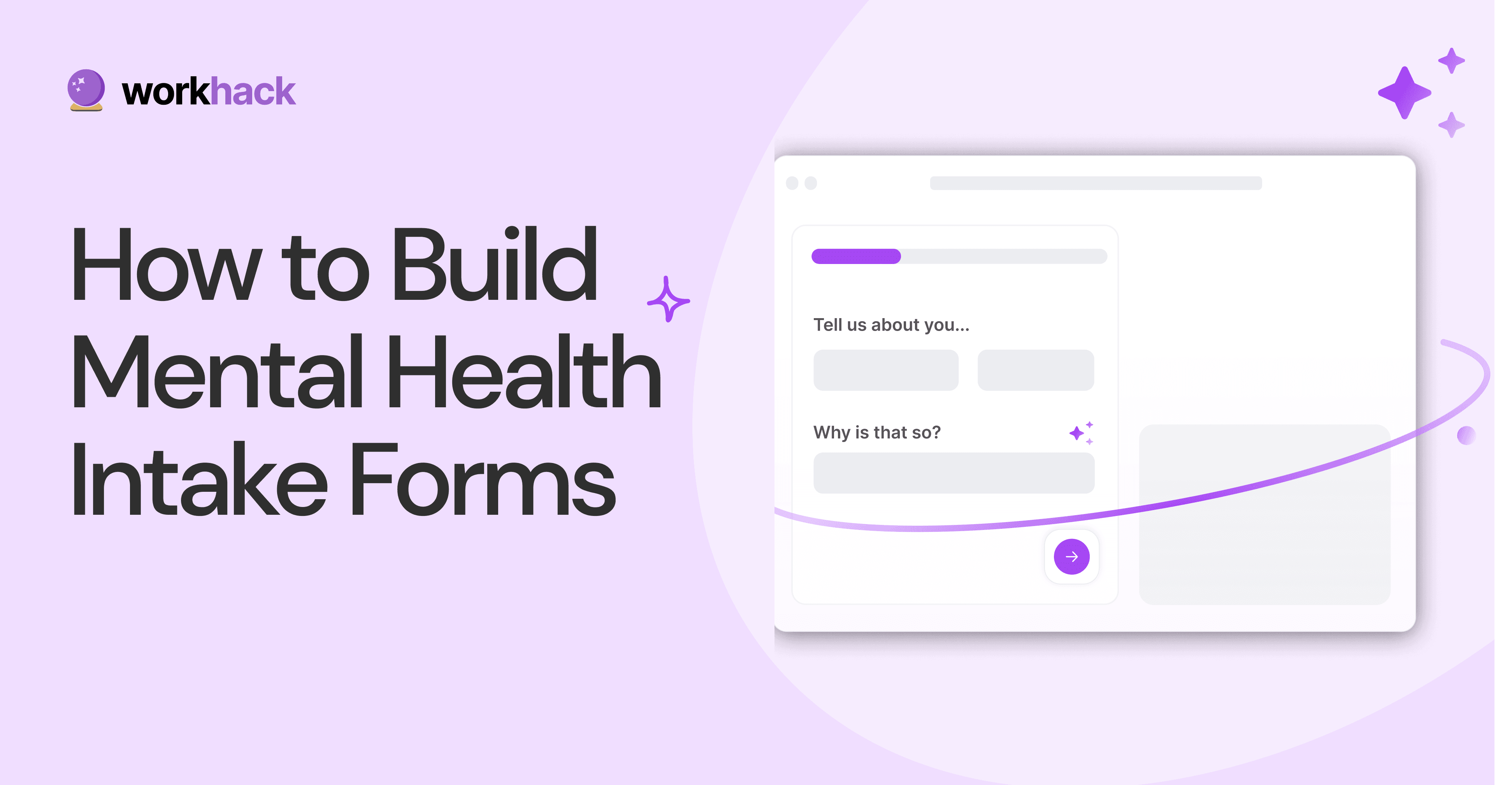
How to Build Mental Health Intake Forms?
Mental health intake forms are not like patient intake forms. Mental health intake forms deal with far more sensitive data and have specific design methods.
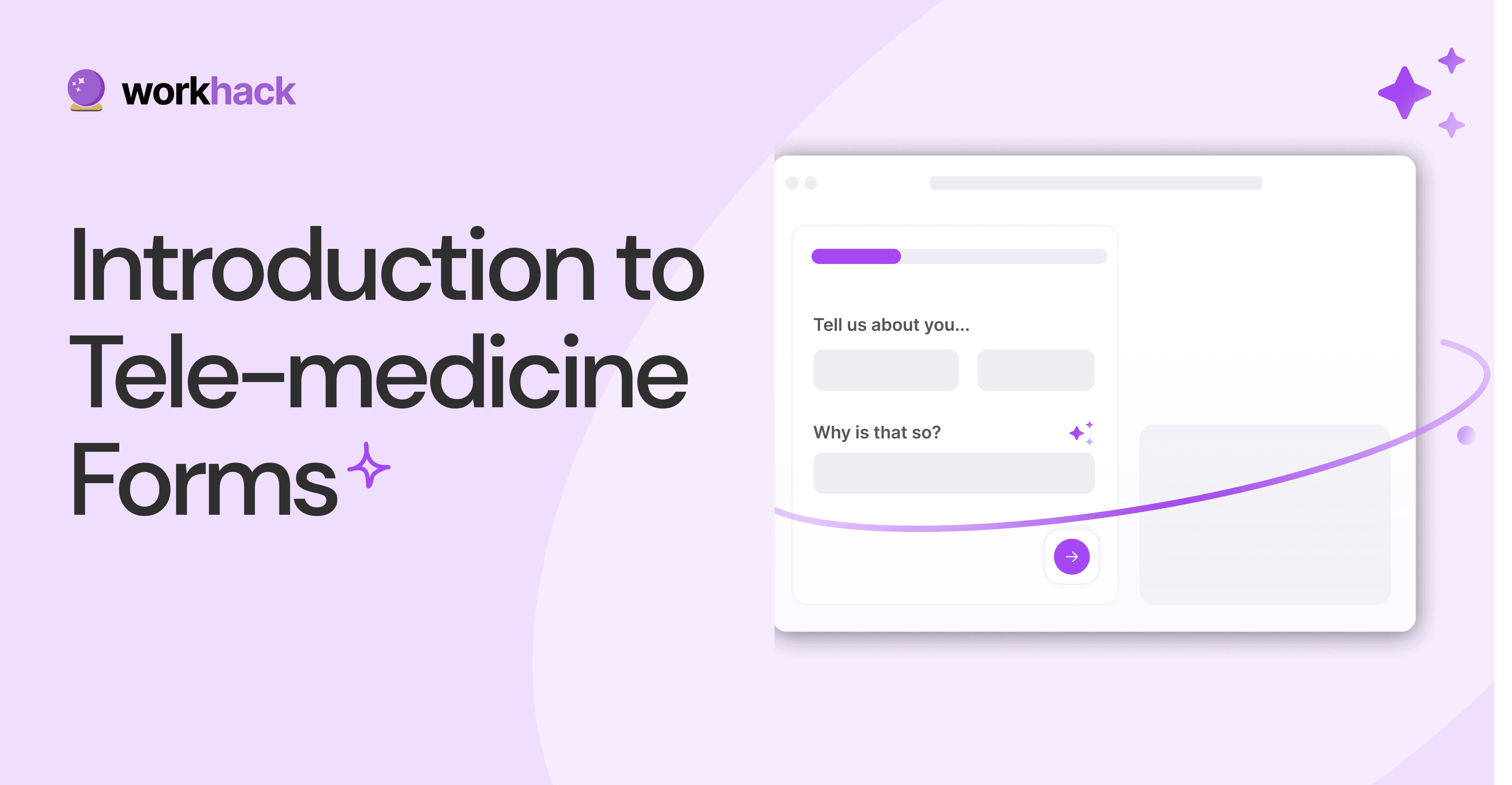
What, Why and How of Telemedicine Forms.
Telemedicine is on the rise and with different form builders out there, which one best suits your needs as a healthcare services provider?
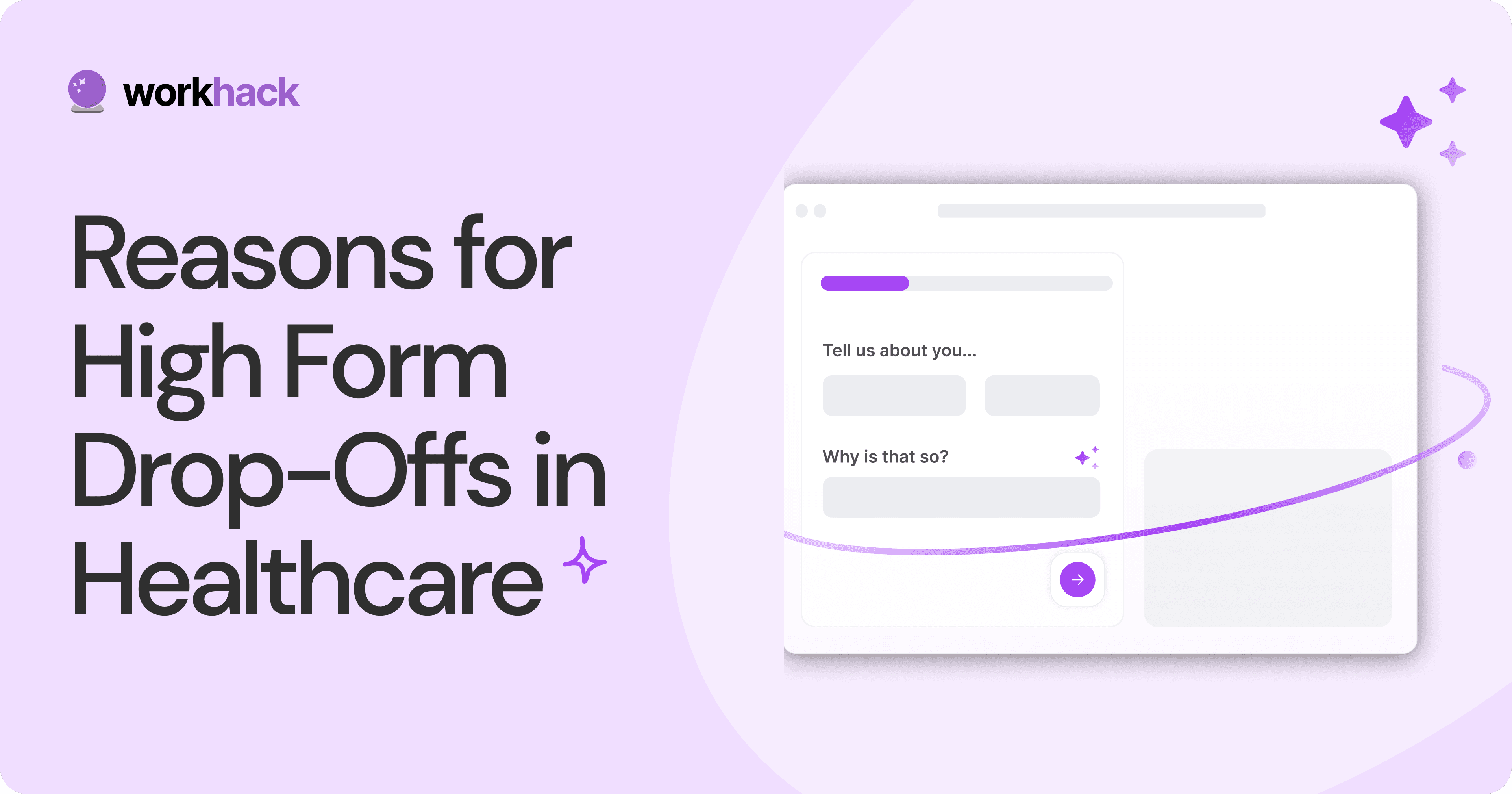
3 Reasons for Major Drop-Offs in Medical Forms.
No matter which healthcare form we pick, there are major drop-off reasons. We shall dive into the top 3 and learn how to resolve them in your next form.
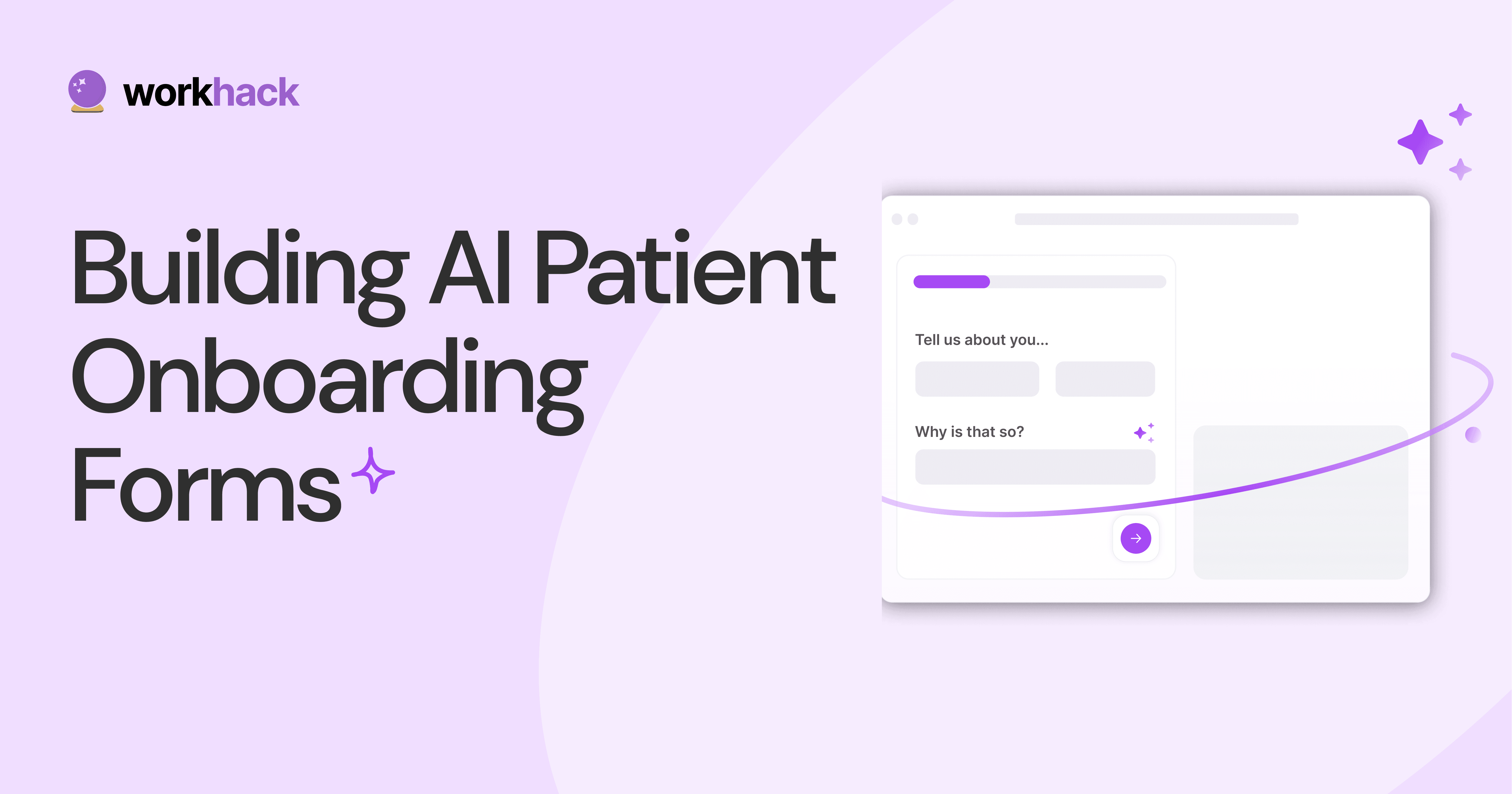
Patient Onboarding Forms - From Click to Clinic.
Patient onboarding forms are the first touchpoint for patients; getting this right for higher conversion rates is a must-have. Learn how to perfect them now.
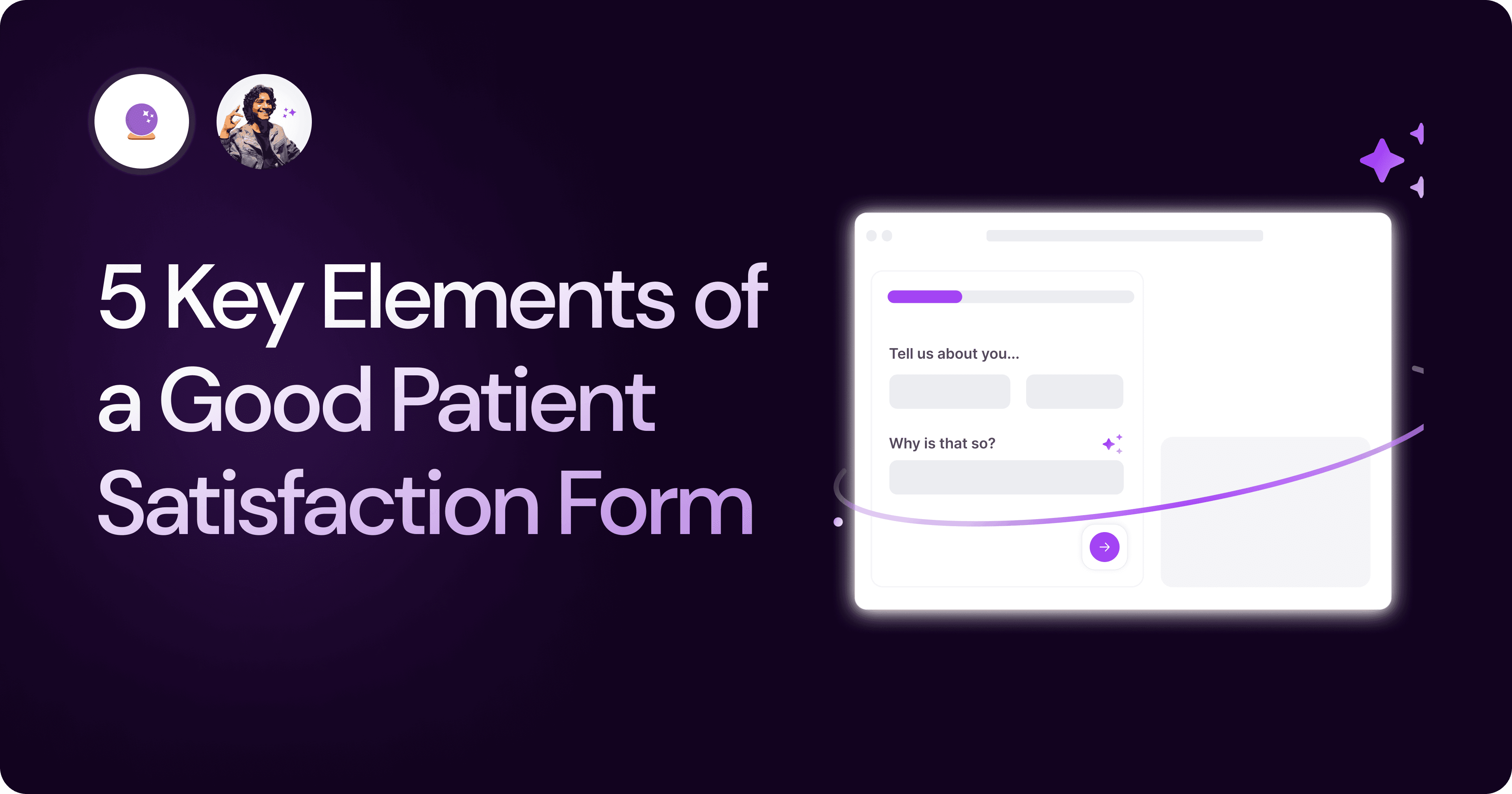
5 Key Parts of a Good Patient Satisfaction Form.
The goal of patient satisfaction surveys is to course-correct the services of a healthcare provider. Patient feedback leads to a culture of patient-centric care.
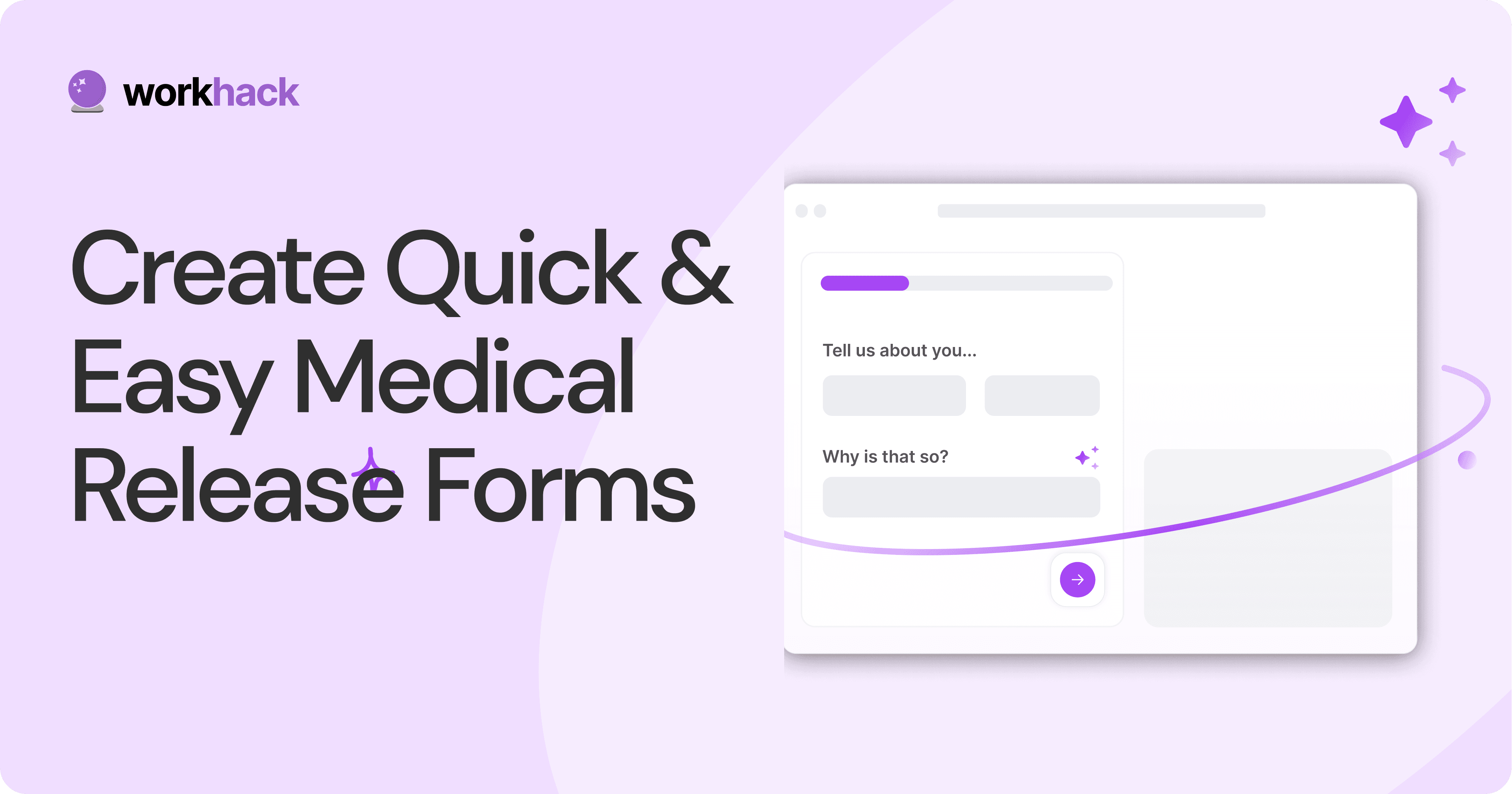
Build Quick and Easy Medical Release Forms.
Every HIPAA-compliant healthcare provider comes across medical release forms that involve details from medical history forms. Can they be shipped fast? Yes.

SAAS Pricing Calculators: B2B v B2C Online Forms.
The SaaS pricing calculator is an essential tool for both B2B and B2C SaaS companies. But how do you build it, right? We have you covered.

B2B SaaS: Making Book a Demo Form.
Having the perfect book a demo form for B2B SaaS is the first step in capturing leads. There are a few fundamental techniques to get this form right. Read on.

How to Get Started With SaaS Onboarding.
SaaS onboarding is essential for customer onboarding in B2B and B2C SaaS. Let’s understand its fundamentals, including the metrics.

Customer Feedback Form: B2B vs B2C.
Why is customer feedback important? Because it dictates progress on B2B and B2B products and services for the customer to meet their goals.

SaaS Customer Feedback Form: 6 Main Types.
As much as SaaS is self-serve, the role of a customer feedback form is highly relevant. There are different types, each with its use case and sections.

Role of a Product Survey in SaaS.
SaaS is all about creating products for specific use cases. This is where a product survey becomes all the more important to know the user deeply.

Should You Do a SaaS Market Survey?
Every SaaS company wants to grow fast. But without a market survey, growth isn't possible or sustainable. Let’s see how to do a market survey.
Subscribe to stay updated.
Subscribe to stay updated.
Subscribe to stay updated.
HC

HC

HC

HC

70+ people from across industries read our emails.
HC

HC

70+ people from across industries read our emails.
HC

HC

HC

70+ people from across industries read our emails.




Bangalore, India / San Francisco, US
WorkHack Inc. 2023
Bangalore, India
San Francisco, US
WorkHack Inc. 2023
WorkHack Inc. 2023
Bangalore, India / San Francisco, US
WorkHack Inc. 2023
Bangalore, India / San Francisco, US



